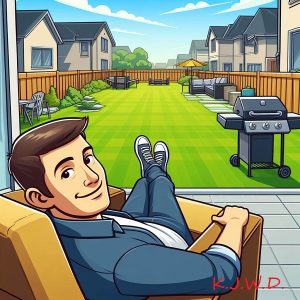Right, acquired tastes, my ar*e. You know what they’re really saying, don’t you? “This stuff is grim, but we can’t afford to throw it away.” So here’s three stories about how you, a literal child, was just too simple to appreciate.
Olives. Tiny, wrinkled balls of sadness swimming in brine. Apparently, these were meant to be a delicacy. I once saw a grown man pick one out of a martini like he’d just fished a spider out of his bath. Acquired taste? More like something you have that has to be surgically implanted to enjoy.
Then there’s Brussels sprouts. These little green landmines disguised as vegetables. My mom used to boil them to the point they were basically plant-based marbles. “Just one bite, Kevin,” she’d plead. “They’re good for you!” Good for who? The trash, that’s who.
Years later, I’m at a fancy restaurant with a date. She orders roasted Brussels sprouts with pancetta. Now, pancetta – that’s an acquired taste I can get behind. But the sprouts? I braced myself for the inevitable visit to flavor hell. Except… it wasn’t hell. It was…alright? They were crispy, not soggy. The pancetta added a salty kick. Maybe, just maybe, there was a sliver of truth to that whole “acquired taste” malarkey?
But here’s the thing: it wasn’t some magical transformation. It was simply a matter of preparation. Olives marinated with garlic and herbs? Now we’re talking. Roasted Brussels sprouts with a decent drizzle of balsamic glaze? Sign me up.
Then there was Escargot which always seemed like the Mount Everest of acquired tastes. Tiny little land snails swimming in garlic butter? No thanks, I’ll stick to the gummy worms, please. But then I saw an episode of that travel show where the host slurped one out of its shell with a look of pure bliss on their face. ‘An explosion of savory goodness!’ they declared. Yeah, right. But hey, maybe someday I’ll find myself on a mountaintop in France, gazing out at the rolling vineyards, and suddenly crave a plate of those slimy suckers. Stranger things have happened. Although, knowing me, that mountaintop craving will probably be for a nice, big basket of their world famous Pommes Frites.
So, the next time someone tries to flog off some dubious food with the “acquired taste” line, tell them this: “Listen, if it needs an instruction manual to be enjoyed, it probably shouldn’t be on the menu.”
–30–





